Spotlight: Hadi Eldebek
Oud player Hadi Eldebek is a musician and cultural entrepreneur based in New York City. Hadi is the artistic director of The Brooklyn Nomads, a cross-cultural band rooted in Arabic music traditions, as well as the co-founder of startups grantPA — a tool for artists to find grants and other opportunities — and Circle World Arts — a platform to learn about the world arts. His TED talk, discussing the importance of funding the arts and artists, has gone viral with more than 1.3 million views. Here, we interview Hadi about his projects, inspiration, work with Silkroad, and more!
How did you decide to become a musician? What drew you to your instrument?
Music has been a major part of my childhood, through my father's beautiful voice, my mother's portable radio, and my brothers' cassette tapes. One day, my brother brought an Oud home, and soon enough, I started to explore the instrument and discover the sounds it made. The Oud spoke to me in a language I understood, it was familiar and amicable, and continues to be a great companion to me today. At that point, I didn’t really decide to become a musician, but rather decided to play music, for it gave me a sense of fulfillment and community. It wasn’t until later in my life, after completing my studies in Math and Science and working in the health field that I made a shift to focus on musical, educational, and cultural projects.
When did you first work with Silkroad? And if you remember, what was the project?
I first joined Silkroad as a teaching artist in 2009 as part of Silkroad Connect, a program that targets low-income schools in NYC and teaches kids about the different artistic traditions in the world. That experience, for my 19-year old self, was very valuable. It showed me how powerful music education is. A year later, I was invited to become a member of the Ensemble.
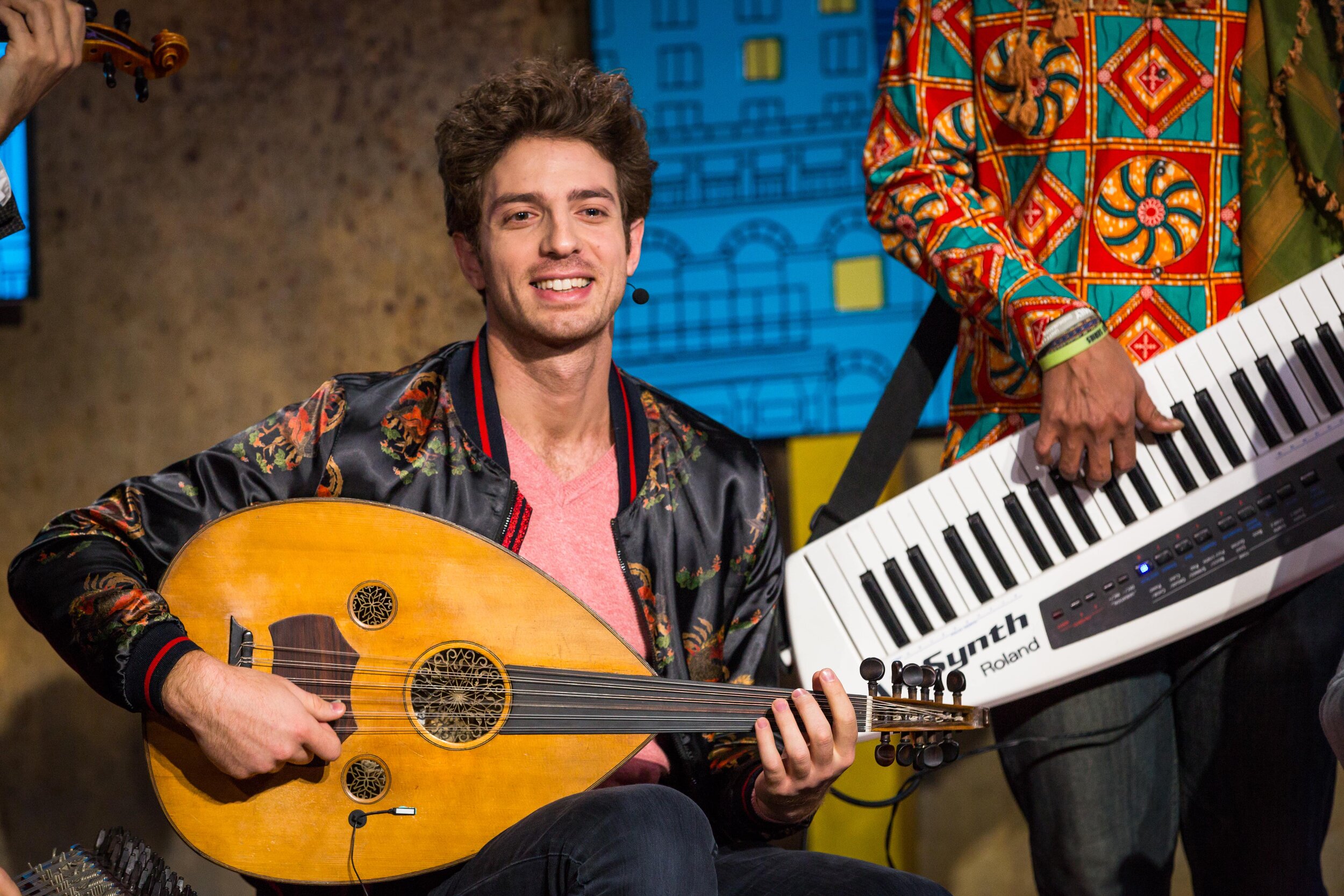
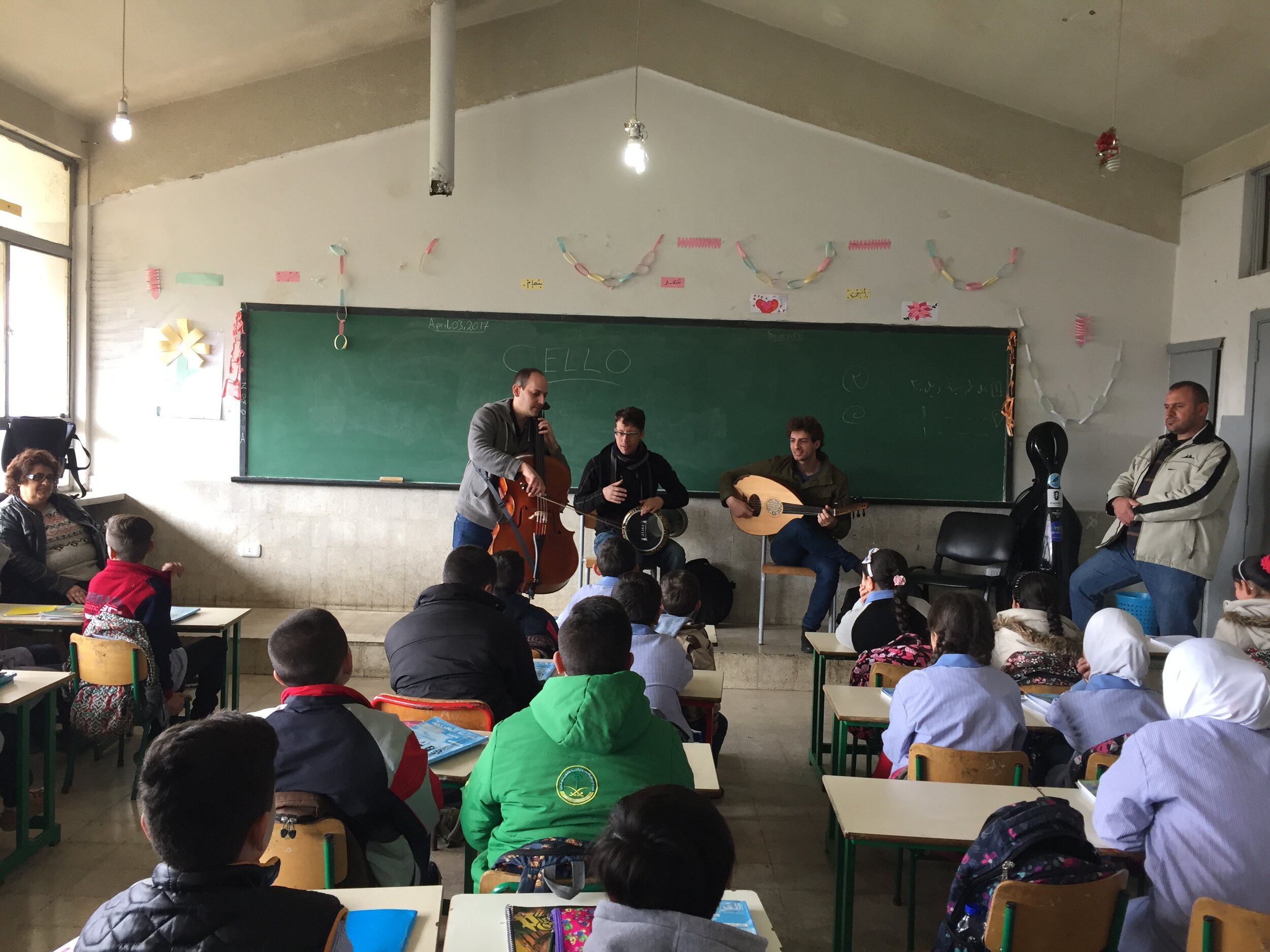
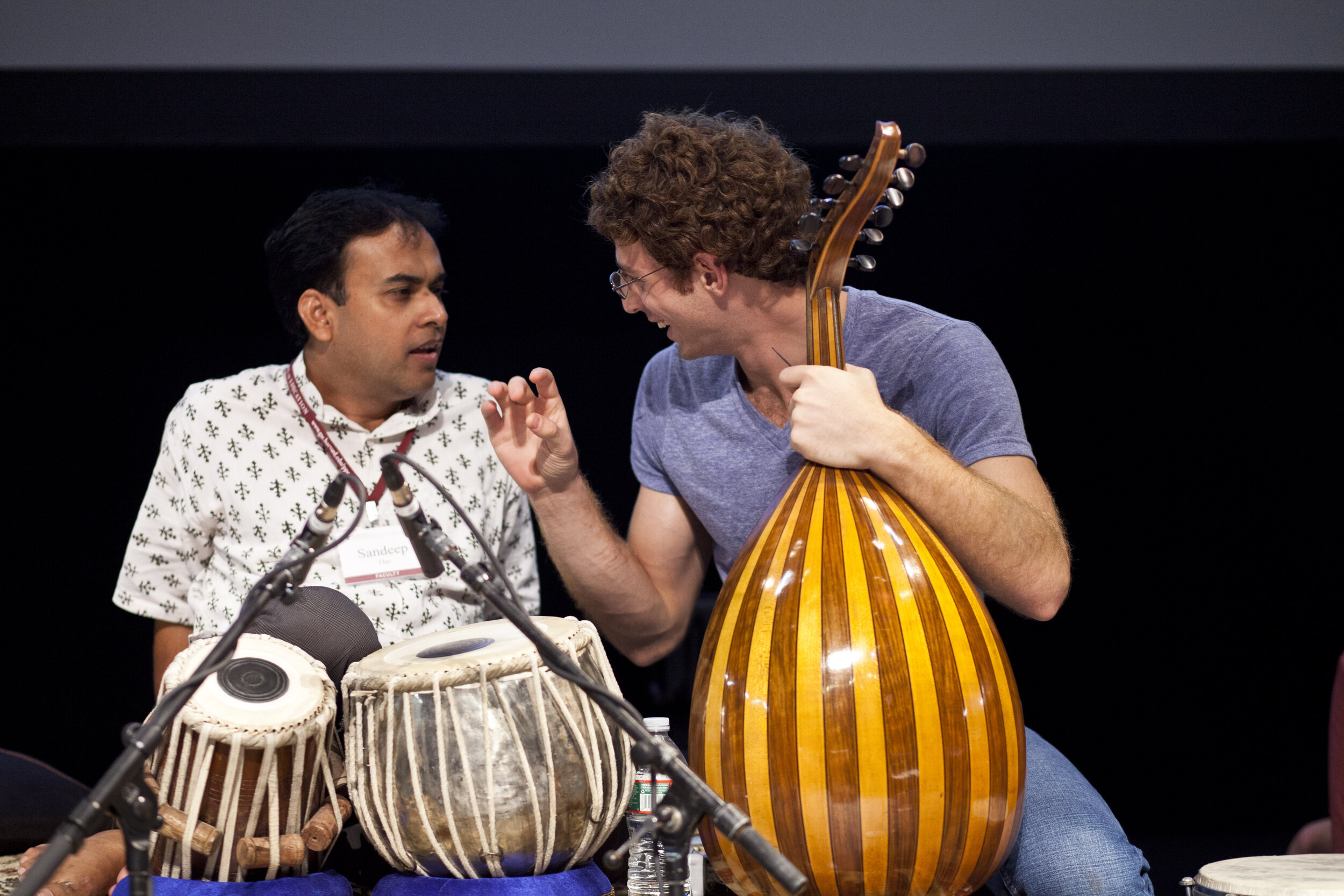
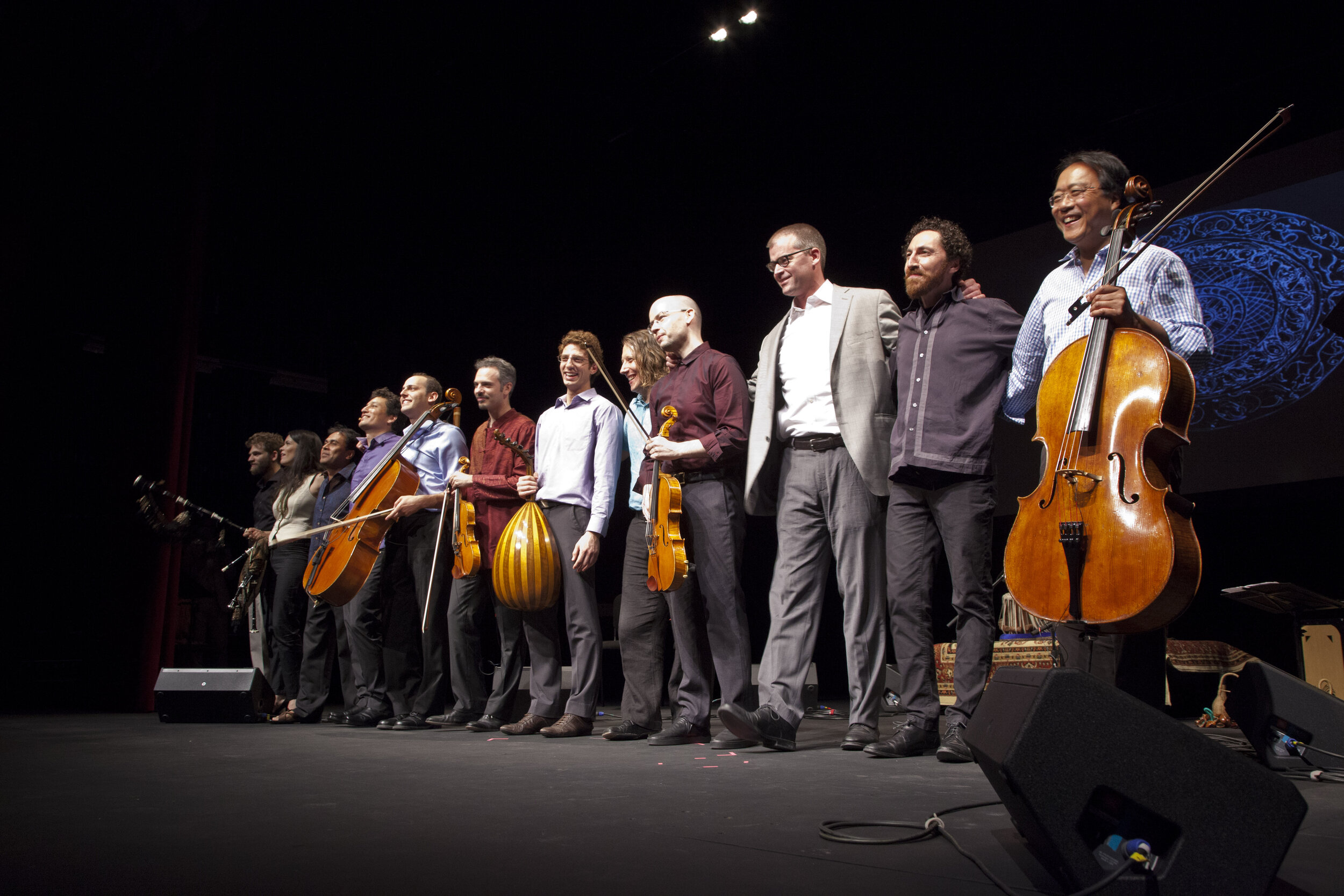
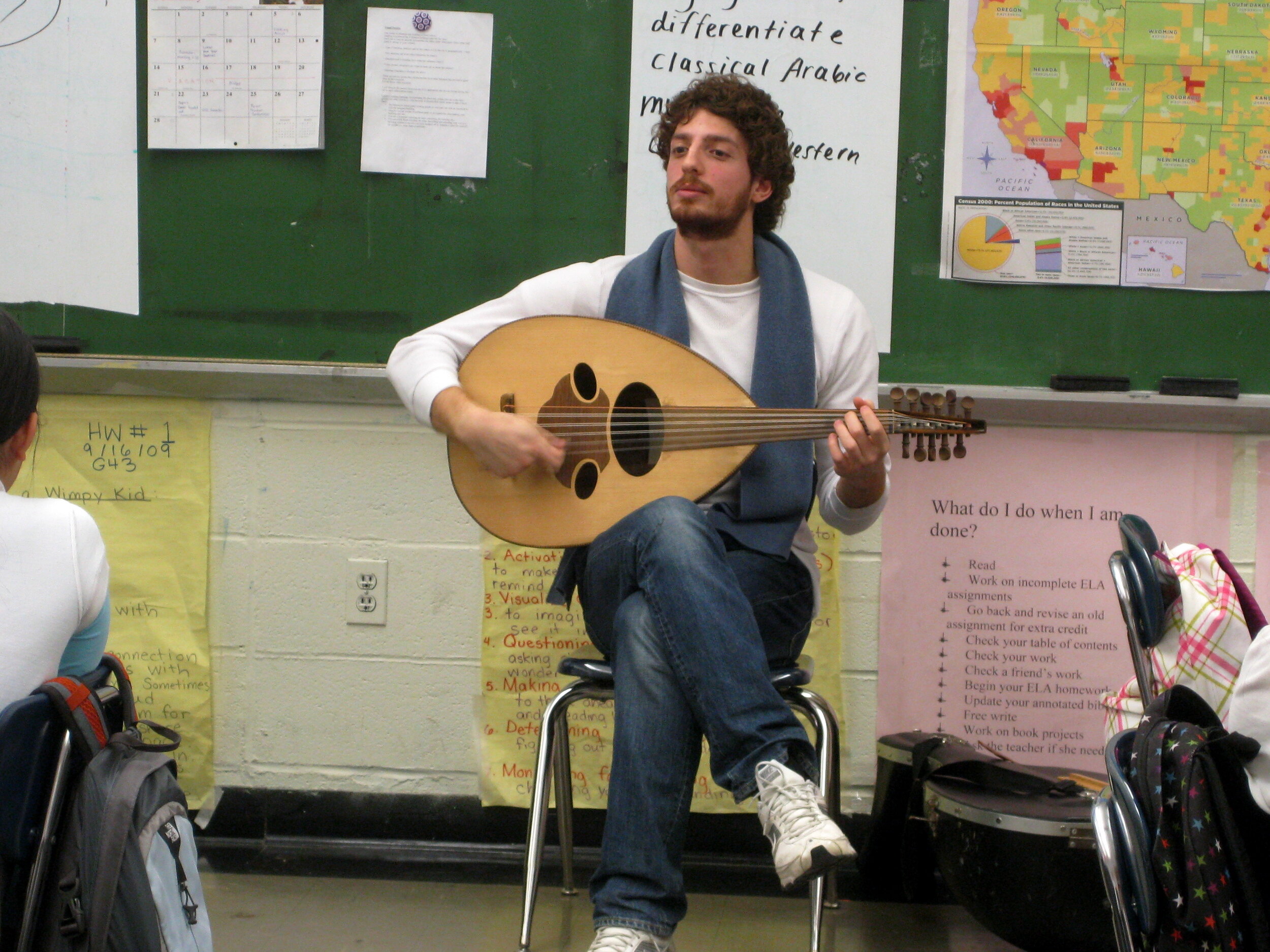
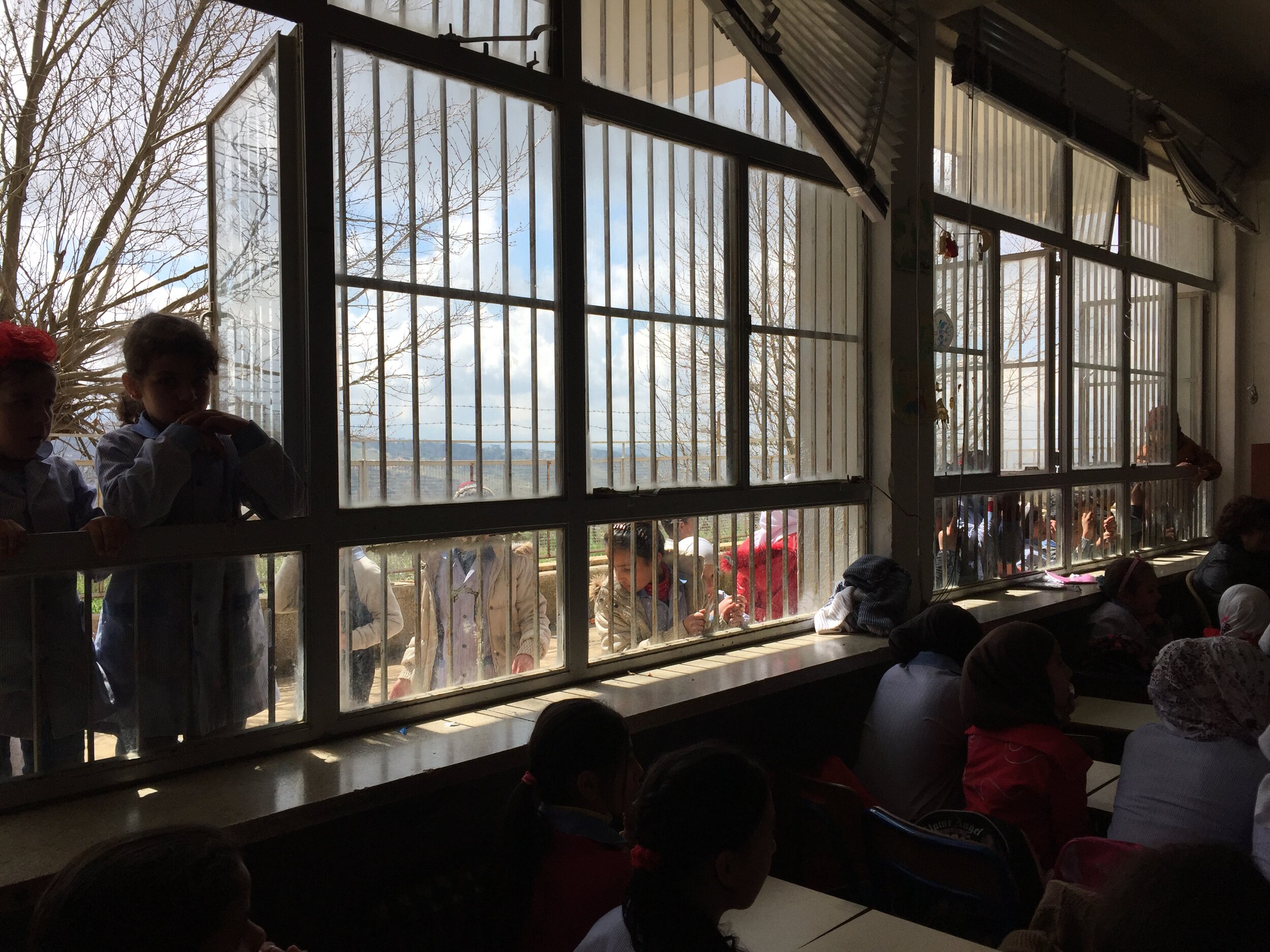
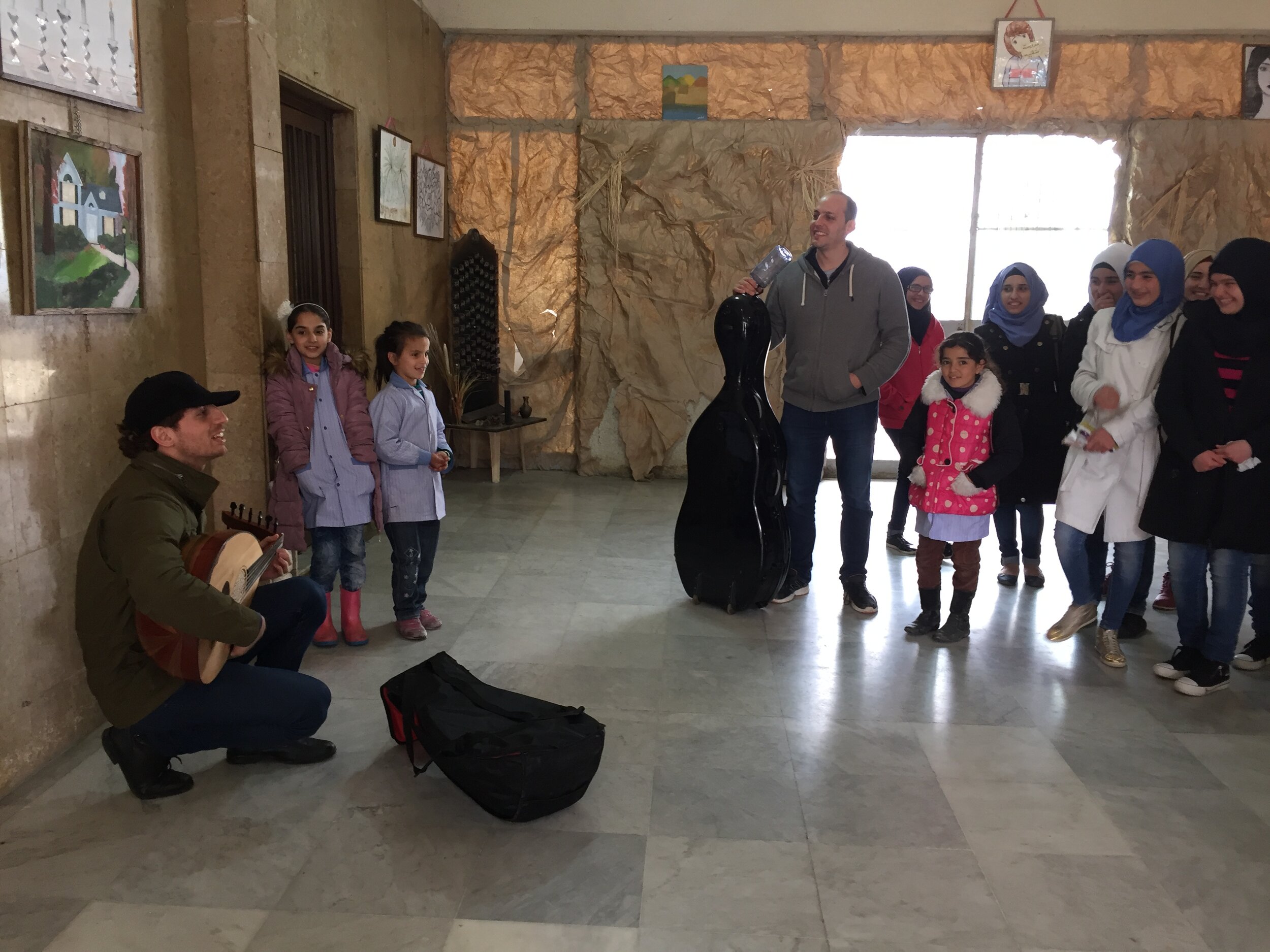
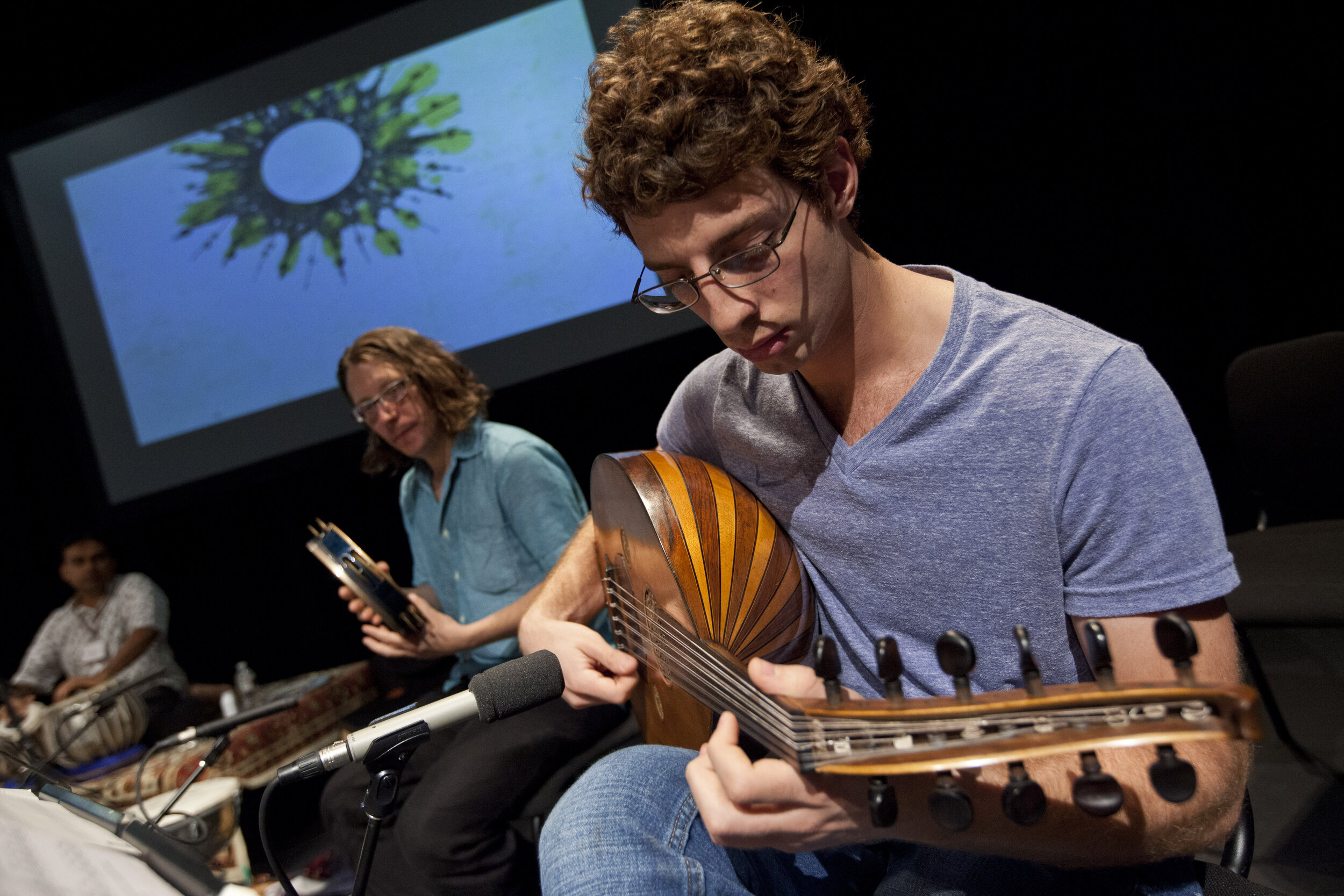
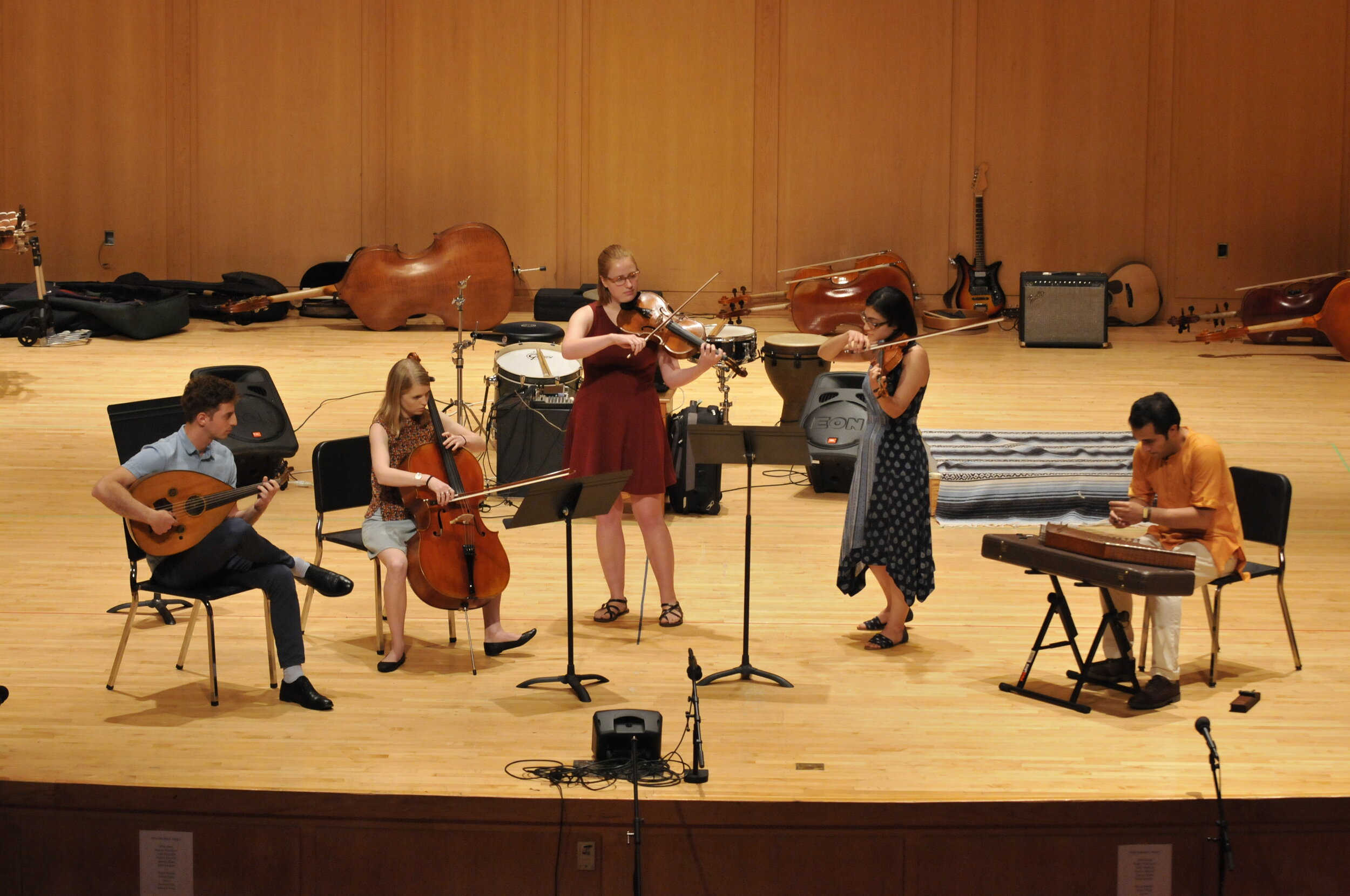
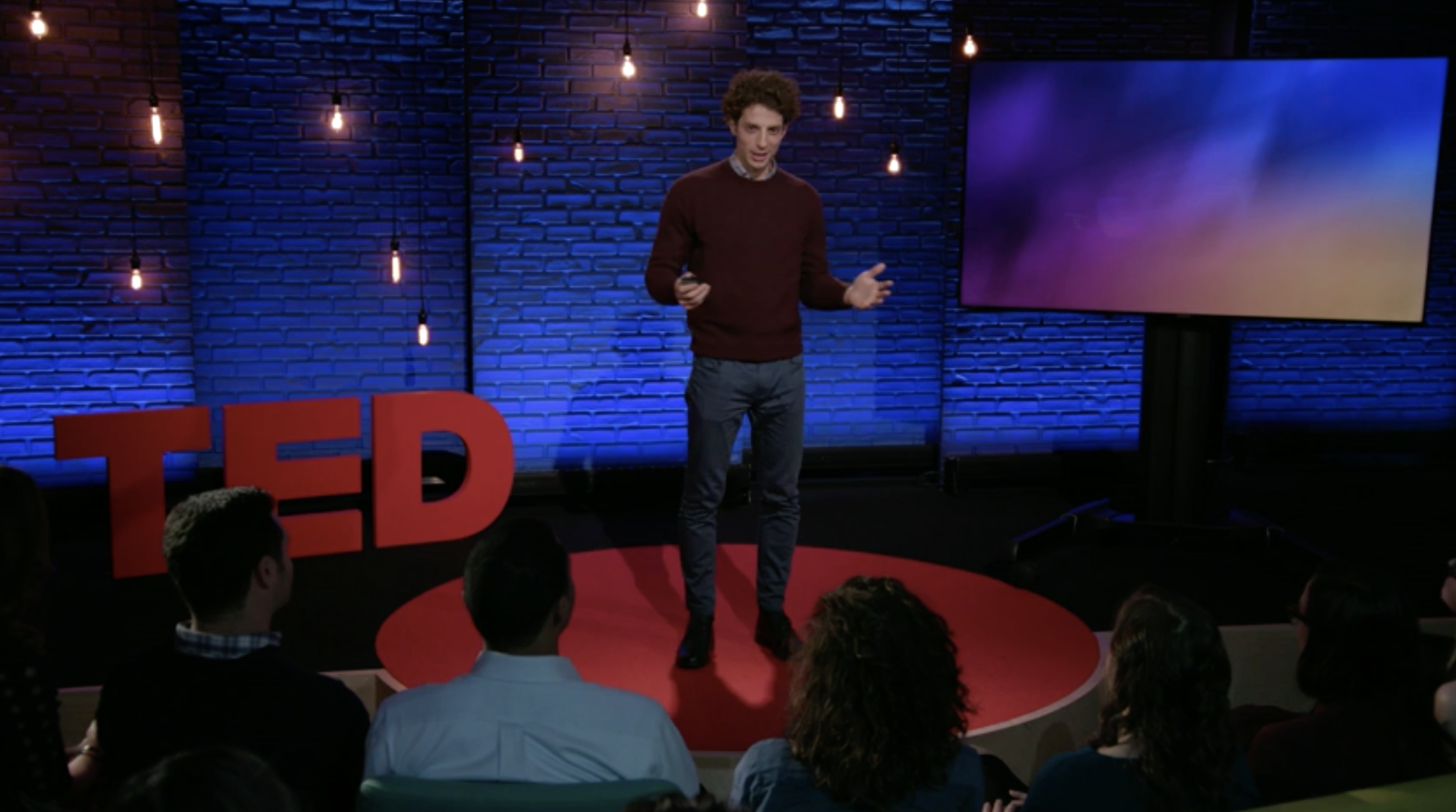
What is one of your favorite memories while working with Silkroad?
One of my favorite memories with Silkroad was in Lebanon when we visited a Syrian refugee school. We did a great job connecting with the kids and teachers. I remember in one of the classes how all the children and faculty were clapping, smiling, and dancing; there were also kids peeking at us from the windows outside the building and clapping along. I appreciated that connection a lot especially with a group of people who have experienced the suffering of war and displacement.
What makes you excited or inspires you as an artist and what kind of projects do you love working on?
The human experience inspires me, especially the human internal journey. Exploring questions about our behavior, our evolution, our awareness, is interesting to me. I composed a piece of music based on a poem by Elia Abu Madi, a Lebanese poet who formed the Arab Pen League along with Gibran Khalil Gibran. In his poem, Al Talasim (The Mysteries), a controversial piece written in 1929, composed of 40 pages, 340 verses, and divided into 7 sections, he asks existential questions in a very avant-garde thought-provoking way. I enjoy working on these kinds of projects.
Al Talasim (The mysteries)
I came, I don’t know from where, but here I am
I saw a road before me, so I walked the road
And I shall continue to walk, whether I want to or not
How did I come? How did I see my road?
I don’t know
Am I new in this existence? Or am I old?
Am I truly free, or bound in chains?
Am I the leader of myself through life, or am I led?
I wish I know, but
I don’t know
How has the pandemic affected you as an artist?
One of the major ways COVID-19 affected me and other artists was through limiting our access to our communities and restricting our ability to connect with them in one intimate physical space. Of course, a lot of performances were cancelled and many creative projects were delayed. But despite all of that, we kept going through the downs and showed great resilience. I know a lot of artists in my circle who adapted quickly to the new situation and used the constraints to their advantage. Such resilience didn’t surprise since I find it to be a major attribute of the creative community of artists.
What kind of projects have you been working on and what can we expect in the coming months or year?
I am working on an album where I collect and arrange folkloric songs that appeared in the shows and theater plays of a dark comedy character from Syria, called Ghawar. His shows were particularly popular in the 1960s and 1970s. The contributions of the actors, musicians, playwrights, and the rest of the creative team who worked on Ghawar’s shows were tremendous. I want to pay a tribute to them by producing this album. Expect the album by Fall of this year, and don't be surprised if you saw some of the songs published as NFTs (non-fungible token). You can find out more about the album by following my instagram or The Brooklyn Nomads instagram.
What are you listening to these days?
Faraj Suleiman, a talented musician from Palestine. Check him out on Spotify and other platforms.
What advice would you give to a young musician who has now read through all of these questions?
Know what you want to do, and believe in your abilities to reach your goals, because with enough faith, commitment, and love, you will.
